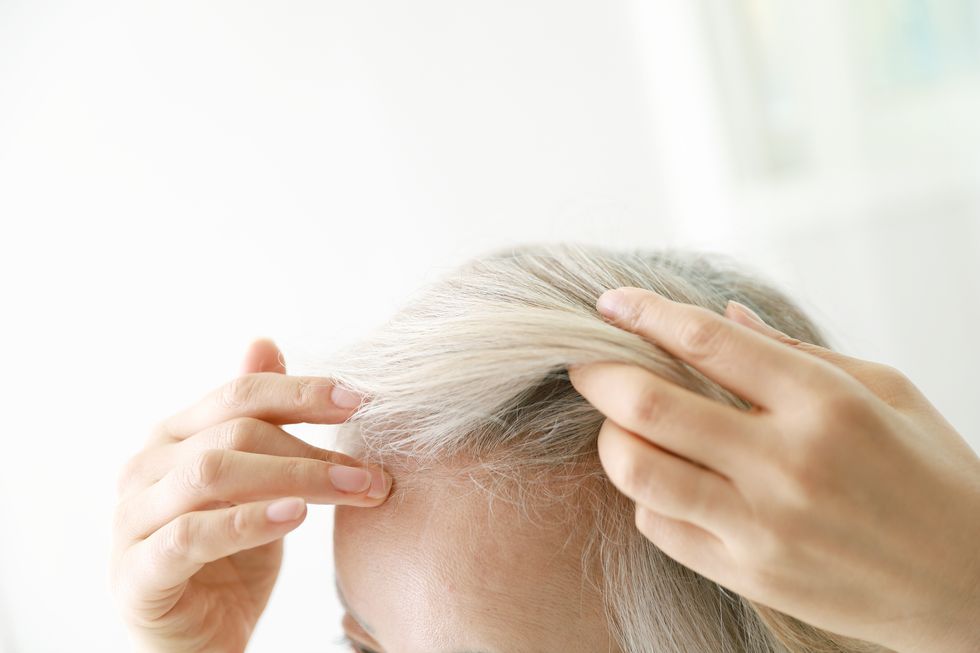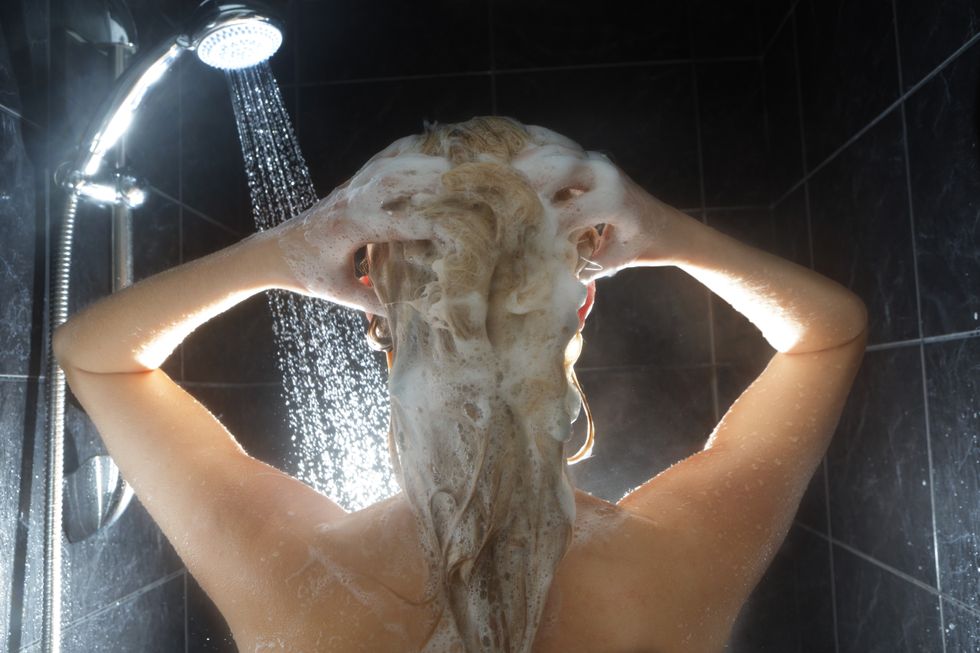How to elevate your shower routine and diet for 'thicker and shinier hair' after menopause
Following several key steps in the showers could bring back your hair's natural lustre
Menopause triggers a tsunami of changes in the body and thinning of the hair is often among the first to stand out. Experts have broken down the best treatments to prevent and reverse age-driven changes on the scalp
Don't Miss
Most Read
Trending on GB News
From a scientific standpoint, hair harbours a wealth of information about what's happening deeper within the body. Socially, it represents a striking element in people's appearances.
Thinning develops naturally over time and is rarely a cause for concern but rather a reflection of hormonal changes in the body. It may, however, hinder confidence as it becomes more noticeable.
Though a quick internet search will present scores of treatments for parched strands, the biggest differences may come from a new and improved hair care routine.
Causes of hair loss after 50
Speaking to GB News, Dr Ray Kleinfelder, a board-certified dermatologist at Lux Dermatology, explained that a decrease in the ovarian production of oestrogen is a key driver of hair loss after menopause.

The solution to thicker and glossier hair may lie in a few additional steps in the shower
GETTY
At this stage, women have a “relative hormonal balance, with an increased impact of testosterone and dihydrotestosterone (male sex hormones) causing changes to the skin and hair, including pattern hair loss," the expert noted.
According to Dr Kleinfelder, this decline in hormones not only drives baldness but can also rob hair of its lustre.
Can hair thinning be reversed?
When asked if reversal is possible, Dr Kleinfelder noted: “Reversal is possible if caught early.
“Maintenance of existing hair and maximising the thickness of this existing hair is most important for obtaining the desired appearance.
“This can be accomplished in [several] ways, from topical formulations to prescription medications, light, lasers, injectables and more.”
The basics of hair care for over-50s
Basic rules of hair care include getting regular trims to keep tips blunt, as split ends travel up the shaft.
When the focus is on thickening and improving the shine, however, there are additional elements to consider.
First and foremost, not all products can provide desired results.
The top recommendation is to opt for shampoos and conditioners formulated for thinning, namely clarifying shampoos.
These cleanse the scalp deeply and remove product build-up, dead skin cells, dirt and other impurities that could clog follicles.
Dietary tips
Healthy food is a key building block for all things relating to hair and skin, so it's no surprise diet demands special attention when things deteriorate.
“Maintaining a well-balanced diet is essential for hair, regardless of menopause," explained Dr Kleinfelder.
Getting good high enough levels of protein, vitamins and minerals such as zinc, selenium, copper and vitamin D, is essential.
Biomedical expert Kashish Golani stresses that omega-3 fatty acids and omega-6 polyunsaturated fatty acids are equally important.
“Biotin is a fantastic supplement for hair, skin and nails,” noted the expert. “You can get biotin from food, such as eggs, so you need to incorporate lots of biotin-rich food into your diet alongside any supplement you take.
“The most important thing to remember is that hair grows in 90-day cycles, so you should persist with all these diet and lifestyle changes to start seeing noticeable results.”

Head massages in the shower will boost blood flow on the scalp
GETTY
Scalp care
Erim, a trichologist in training and founder and CEO of hair care and beard care brand ByErim, suggests using an exfoliating scrub in the shower to boost shine.
“Exfoliating the scalp with the right AHAs and a chemical exfoliant with natural ingredients helps cleanse the scalp for better product absorption (hair oils, serums) which helps achieve thicker and shinier hair," the expert told GB News.
“Scalp exfoliation shouldn’t be a daily ritual,” the expert warned, explaining that one treatment per week is enough if it is left on for five minutes before washing.
“Using it sparingly and as needed wouldn’t cause any damage,” Erim noted. “The last thing you want is to overdo it and leave the scalp dry and coarse.”
Erim likes to follow up with a deep oil treatment the day after her scalp has been exfoliated and wash off this oil with shampoo and conditioner.
Naturally, consistency is the key to seeing impactful, long-term changes, so the earlier you incorporate these practices into your routine, the better.








